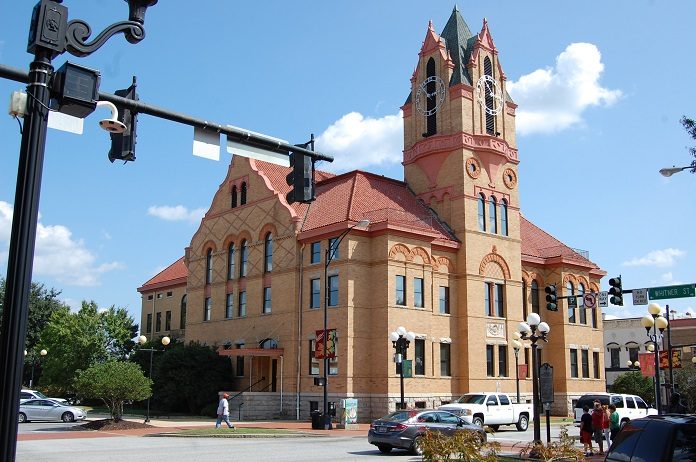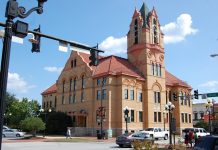By Stan Welch
Following months of public meetings concerning a proposed road fee to generate funds for paving and bridge maintenance, the Anderson County Council is leaning towards a one cent transportation sales tax instead.
County administrator Rusty Burns explained that the public input gathered at the fifteen different town hall meetings held all over the county made two points very clear. First, many people felt that the amount generated by the proposed fee would be inadequate for the task; and second, the people seemed to prefer a referendum where they could vote on the issue, instead of leaving it in the council’s hands.
The issue of the roads and bridges, and their deteriorating condition has arisen in large part because the General Assembly, in recent years, has reduced the assessment ratio on vehicles from ten and a half per cent to six percent; a decision that results in an annual loss of $4.7 million in tax revenues for the county.
Additionally, the schools consume sixty two percent of vehicle property taxes, while the county receives only the remaining thirty eight per cent. That amounts to $8.9 million a year. Straining that resource is the demand of maintaining 1534 miles of county roads and 131 bridges.
Of those miles, only 422 miles are considered to be in excellent shape, with another 692 miles in good condition. The projected cost of bringing all county roads to excellent status is approximately $185 million.
There are 215,000 vehicles registered in Anderson County. As proposed, the road fee ordinance contained a proposed exemption for those over sixty four years of age, or who have handicapped tags; a provision that would reduce the vehicles subject to the fee by a total of 47,100, leaving 167,900 vehicles.
That would generate just under $4.2 million a year for use in road maintenance. The ordinance establishing the fee would also prohibit the revenue’s use from anything but county road upkeep; just as the recently enacted gasoline tax increase is not available for use by the counties, being dedicated by law to the upkeep of state roads only.

















